From the 17th to 21st September I attended the Summer School in Coptic Literature and Manuscript Production at the centre for the Study of Manuscript Cultures in Hamburg. It was a week of intensive study of various aspects of Coptic manuscripts and related fields, such as Ethiopian or Syriac Christianity.
Students not only from the area of Coptic Studies, but also from neighbouring disciplines took part and were able, through lectures given by specialists in their fields, to get a thorough insight into numerous aspects connected with manuscript production in Egypt. A variety of topics were covered, from the Coptic Bible, via alchemy, to the archaeometric analysis of Coptic inks. A few selected participants were also given the wonderful opportunity to briefly present their own work in progress. The stimulating discussions which ensued after the lectures created the impression of being at a Coptological conference.
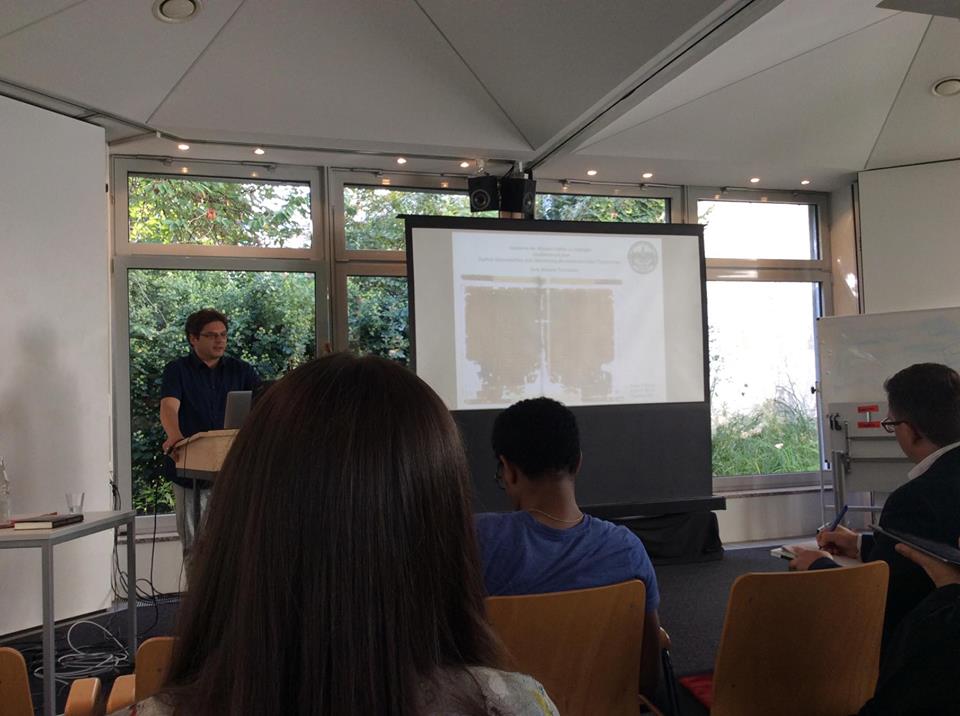
Among the lecturers were also colleagues from the Digital Edition of the Coptic Old Testament. On the first day, we heard from Frank Feder about the challenges and problems the project has to overcome. He also made the students aware of the complexities of Coptic dialectology.
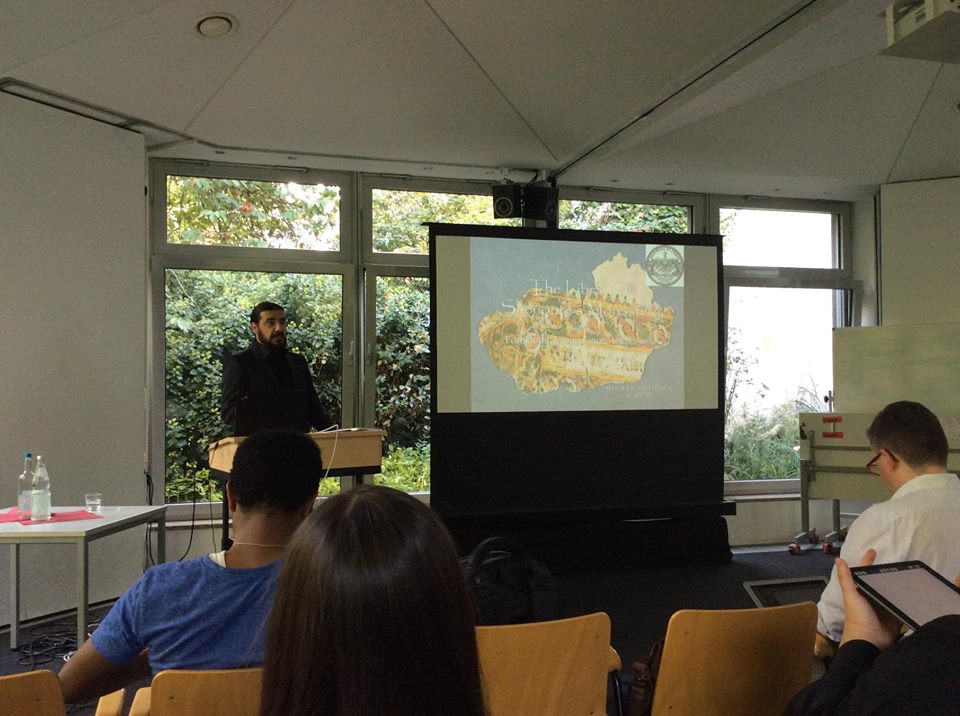 Alin Suciu gave comprehensive overviews of the library from the Monastery of Apa Shenute (White Monastery), and of Greek patristics in Coptic. He made the participants aware of the state of research on Coptic literature, as well as the issues, which scholars face while researching early Christianity in Egypt.
Alin Suciu gave comprehensive overviews of the library from the Monastery of Apa Shenute (White Monastery), and of Greek patristics in Coptic. He made the participants aware of the state of research on Coptic literature, as well as the issues, which scholars face while researching early Christianity in Egypt.
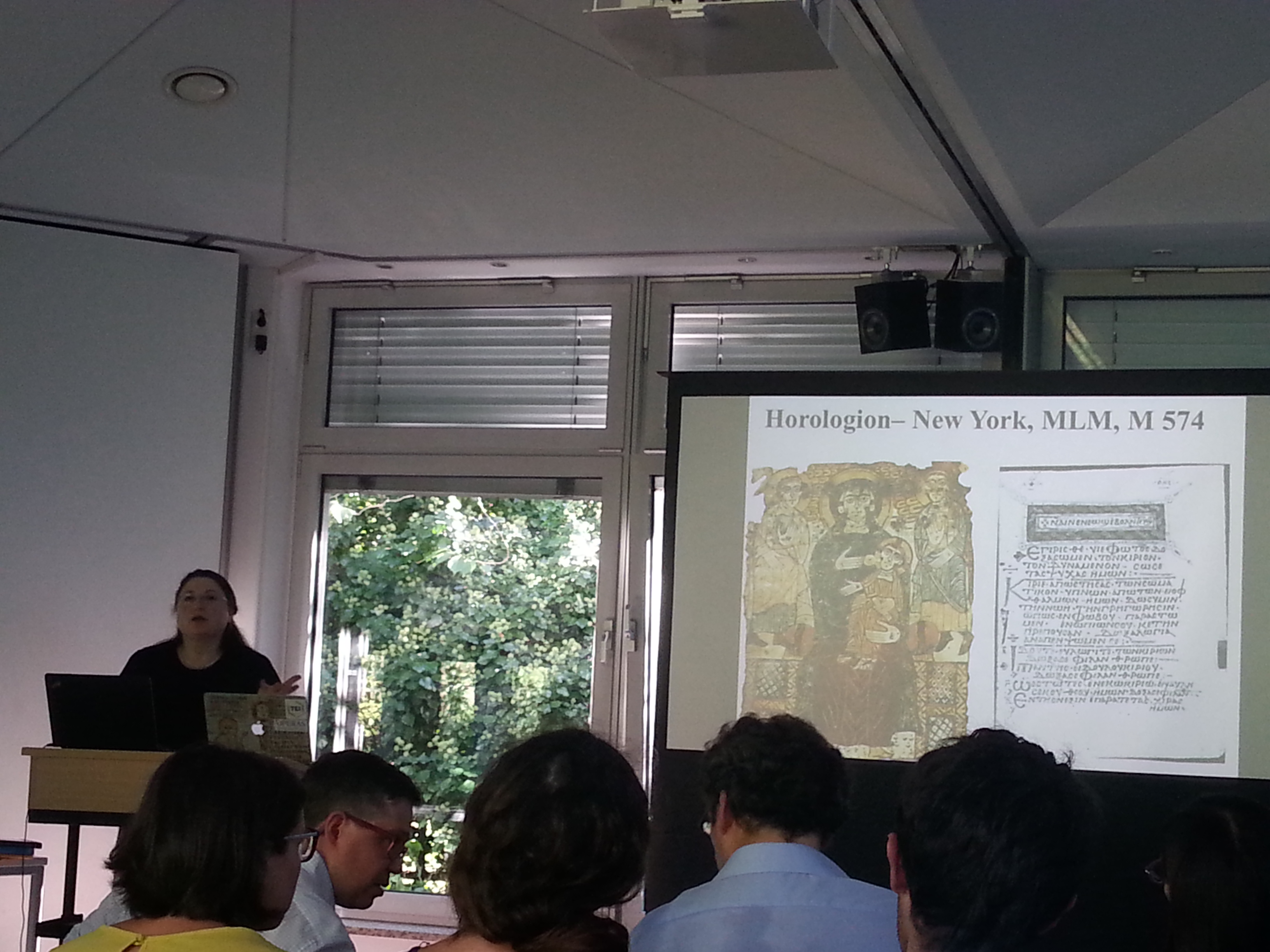
Diliana Atanassova delivered a passionate presentation on “The Primary Sources of Sahidic-Coptic Liturgy,” giving the participants a glimpse of several vital publications which she brought with her, and encouraging students towards research on Coptic liturgy, an area severely underrepresented in Coptic Studies.
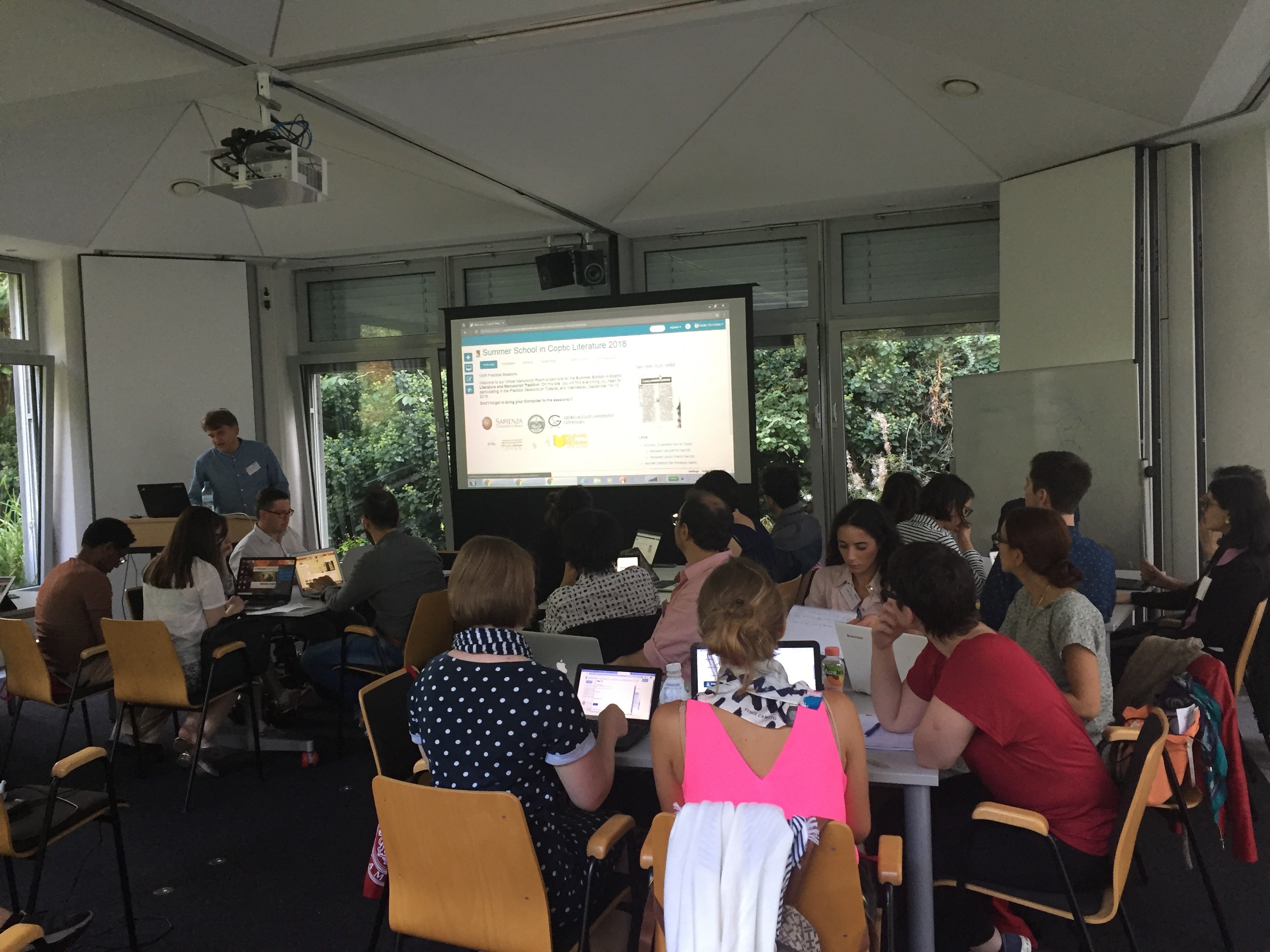
Malte Rosenau made sure that participants got to do hands-on exercises, showing us first hand how the Virtual Manuscript Room of the Coptic Old Testament project works. In particular, the participants learnt how to properly index and transcribe a biblical manuscript.
Heike Behlmer and So Miyagawa presented “Bible studies and the Literary Dradition and Digital Text Re-use Research," a topic which combined examples of the use of Biblical quotations in the literary work of Shenute with more general observations on how Digital Humanities methods can be used in philological research.
We were also given the unique opportunity to visit the State and University Library and see original manuscripts as well as watch Thea Ghigo's archaeometry in action, observing how the type of ink on a papyrus is determined using near-infrared photography.
In addition to these, there were just too many other lectures from renowned scholars to mention in this short text, but the full programme can be found here:
https://www.manuscript-cultures.uni-hamburg.de/register_coptic2018.html
The school ended with an important message from Paola Buzi, relevant not only for Coptic Studies but for scientific research in general: nowadays it is vital to share research data. Exchange of research and dialogue among scholars is essential for the progress, a statement no one can argue with.
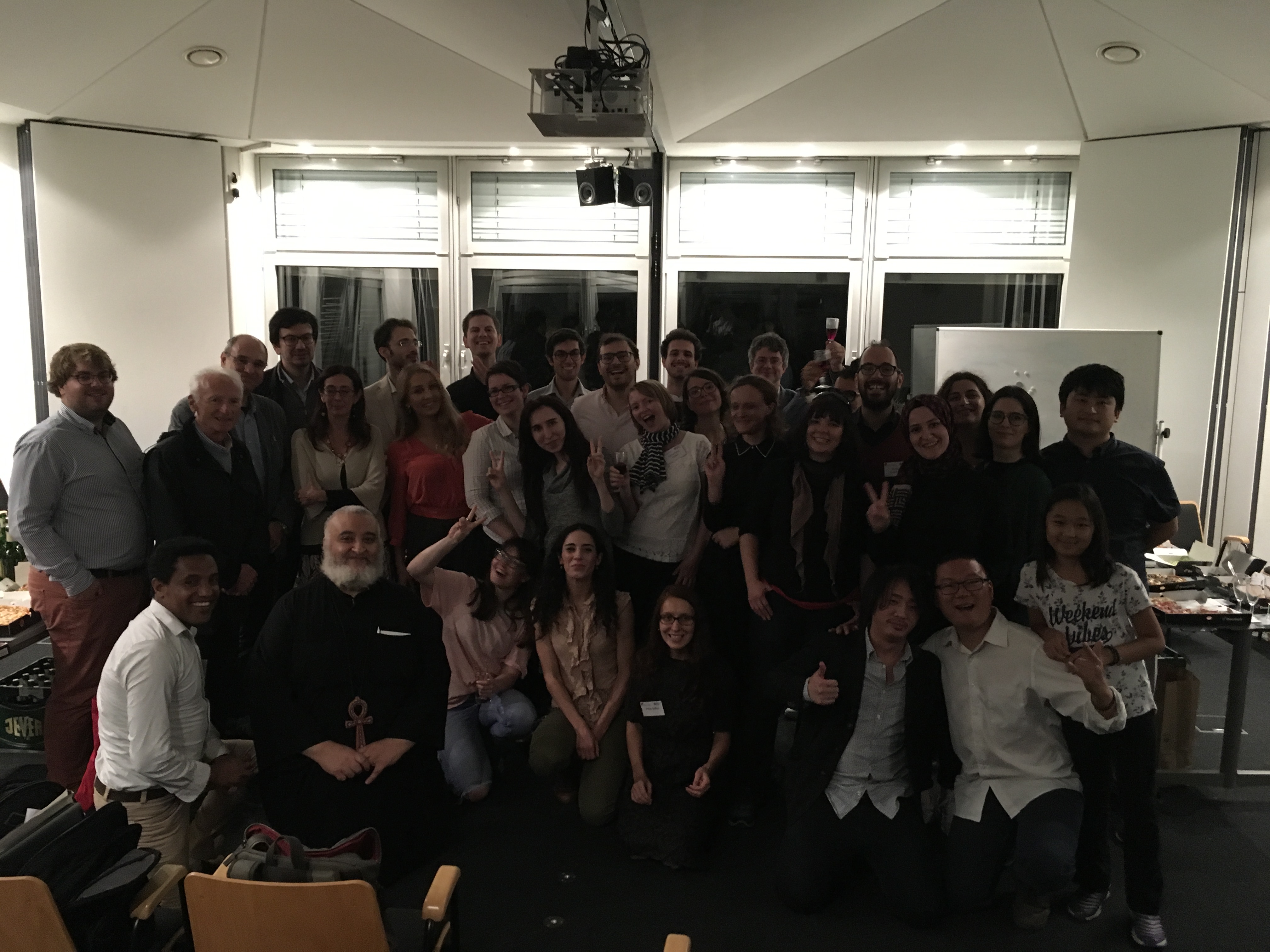
It was a very intensive, but fruitful week with not only plenty of information, but also new contacts and potential for future collaboration. A huge thanks to Paola Buzi and her PAThs ("Tracking Papyrus and Parchment PAThs: An Archaeological Atlas of Coptic Literature”, Rome) team for the terrific organisation of the event.
 Blogs
Blogs  Viimeisimmät bloggaajat
Viimeisimmät bloggaajat 




